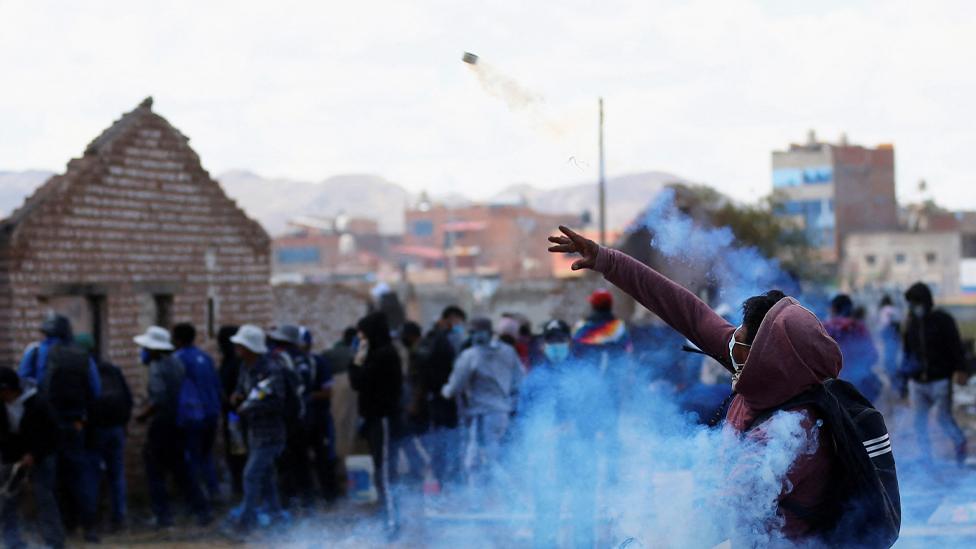Dina Boluarte: Peru's president blamed for protesters' deaths
- Published
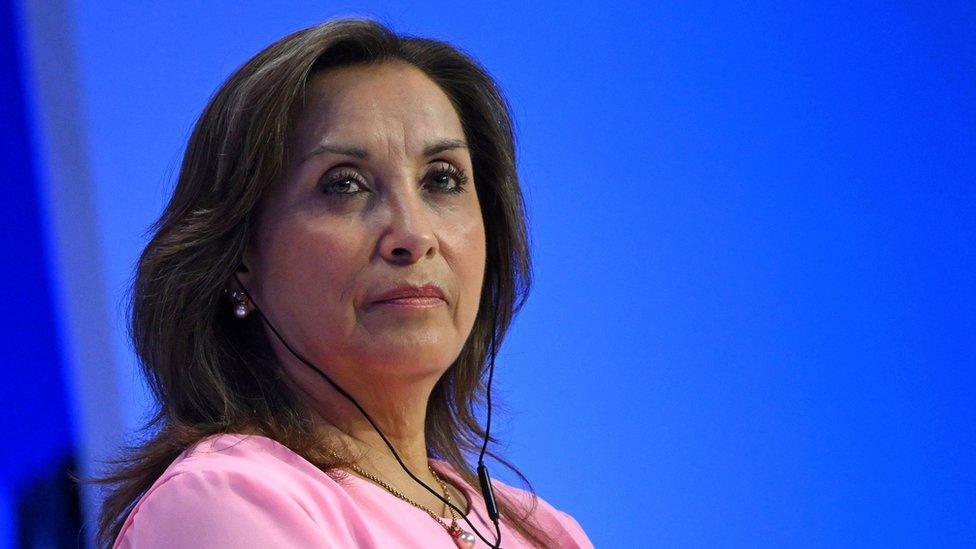
Dina Boluarte was sworn into the office after Pedro Castillo was impeached following his failed attempt to dissolve Congress
Peru's top prosecutor has blamed the president, Dina Boluarte, for the deaths of a number of demonstrators during anti-government protests.
After an 11-month investigation, Attorney General Patricia Benavides filed a constitutional complaint against the president on Monday.
Ms Boluarte has described it as "a despicable political manouevre".
The president has accused Ms Benavides of using the complaint as a distraction from her own legal problems.
The attorney-general filed the complaint against the president just hours after she herself had been accused of leading a corruption ring, which allegedly dropped investigations against lawmakers in exchange for them appointing allies of Ms Benavides to key posts in the judiciary.
Ms Benavides has denied any wrongdoing, has fired the prosecutor who made the allegations against her team, and has so far resisted calls for her resignation.
The stand-off between President Boluarte and Attorney General Benavides is the latest twist in Peru's political woes which started with the ouster of President Pedro Castillo in December of last year.
Mr Castillo was removed from office by lawmakers after he tried to dissolve Congress in an attempt to stave off an impeachment trial.
Dina Boluarte, who had been Mr Castillo's vice-president, sided with Congress and was sworn in as the new president to serve out the remainder of Mr Castillo's term in office.
But supporters of Mr Castillo took to the streets to demand her resignation and weeks of upheaval ensued in which demonstrators blocked major highways and occupied airports.
Ms Boluarte's government deployed security forces to restore order and lift the blockades, which had left thousands of tourists stranded, paralysed commerce and led to shortages of food and petrol in some areas.
According to Peru's Ombudsperson's Office, at least 49 protesters and bystanders were killed from December 2022 through February 2023 in clashes with the security forces.
Many of the bodies had bullet wounds, which human rights groups said were caused by weapons fired by the security forces.
In a report published in May, external, the Inter-American Commission on Human Rights (IACHR) concluded that "a disproportionate, indiscriminate, and lethal use of force was a major element of the State response to the protests".
Attorney General Patricia Benavides launched an investigation into the protesters' deaths as early as January but the complaint she filed on Monday is the first charge brought against the government over the clashes.
Ms Benavides said in a TV address on Monday that she had filed a "constitutional complaint" against President Boluarte, and the Prime Minister, Luis Alberto Otárola, accusing them of murder.
However, the murder accusation is unlikely to lead to a criminal trial in the near future.
Under Peru's constitution, presidents and parliamentarians cannot be put on trial while they are in their posts for alleged crimes committed as part of their role.
The attorney general can instead file a constitutional complaint which has to be reviewed by a congressional committee in order to proceed.
Even if the complaint were to be approved by a majority of members of Congress, a trial would only proceed once President Boluarte and Prime Minister Otárola leave office.
Ms Boluarte's presidency is due to end in July 2026 but given Peru's recent history of unrest, impeachments and resignations staying in office until then will prove a challenge.
No Peruvian president has served a full five years since Ollanta Humala finished his term in 2016.
Related topics
- Published2 February 2023
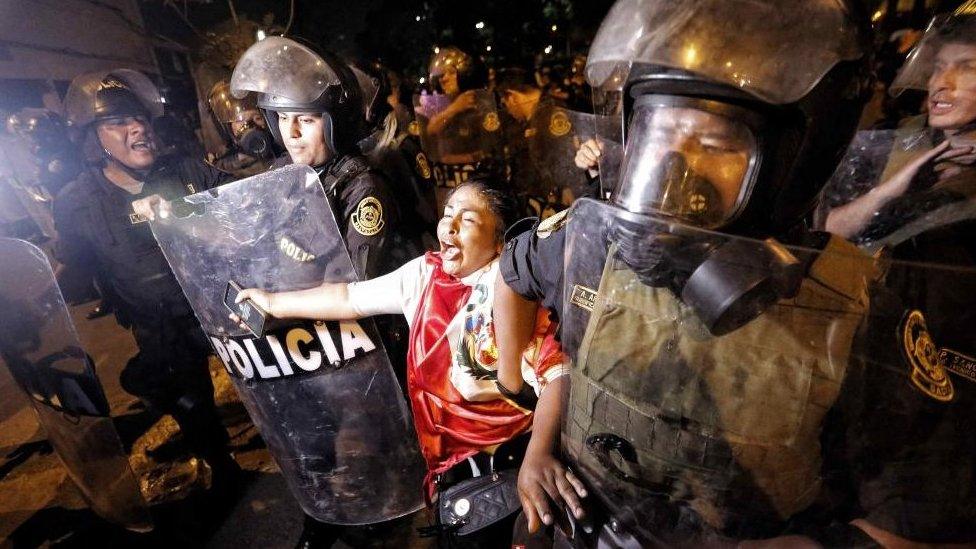
- Published25 January 2023
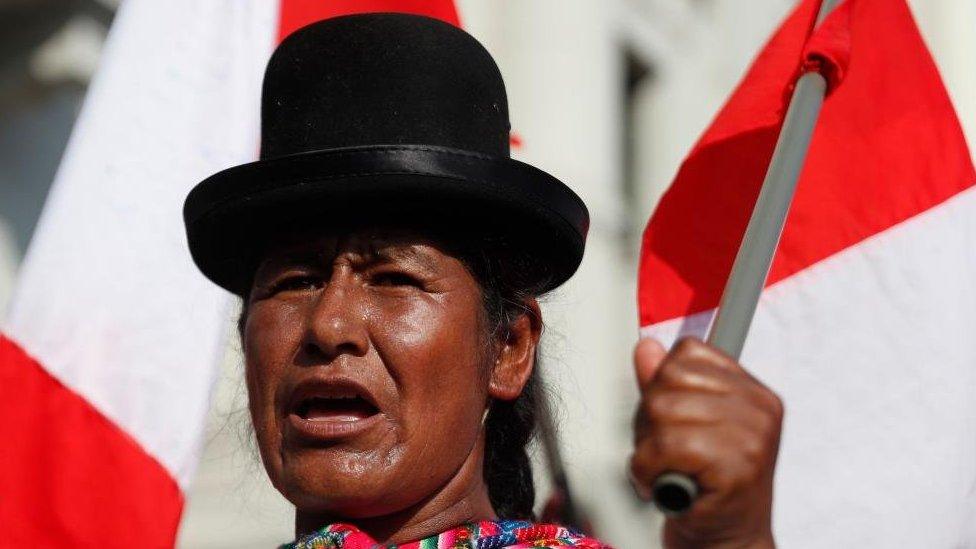
- Published11 January 2023
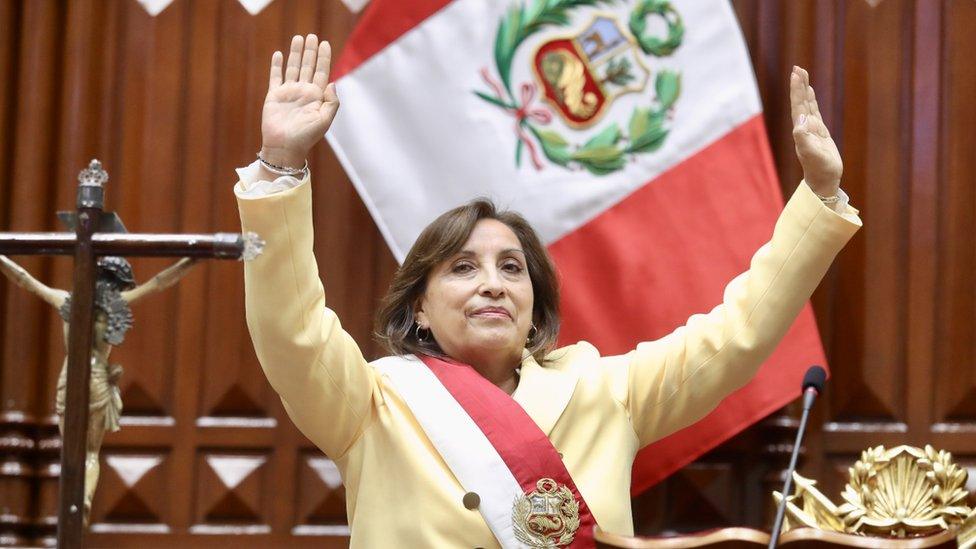
- Published10 January 2023
